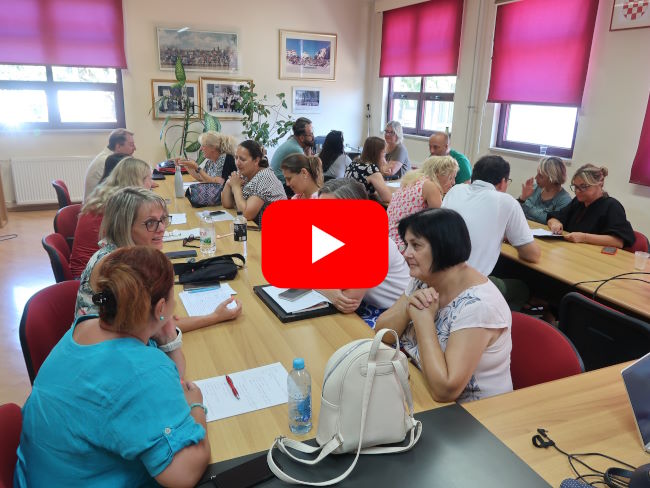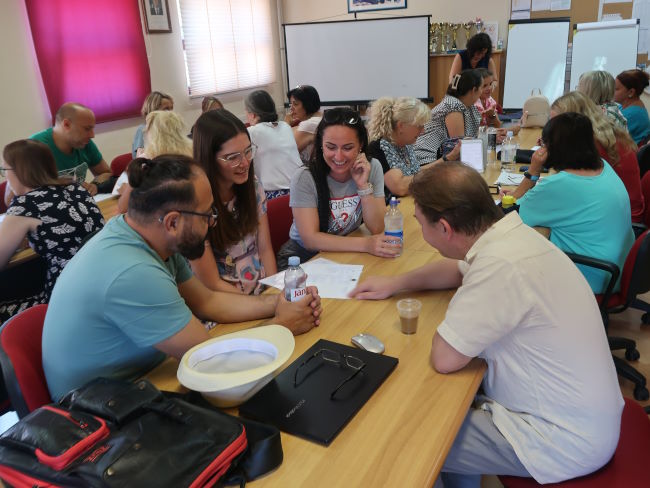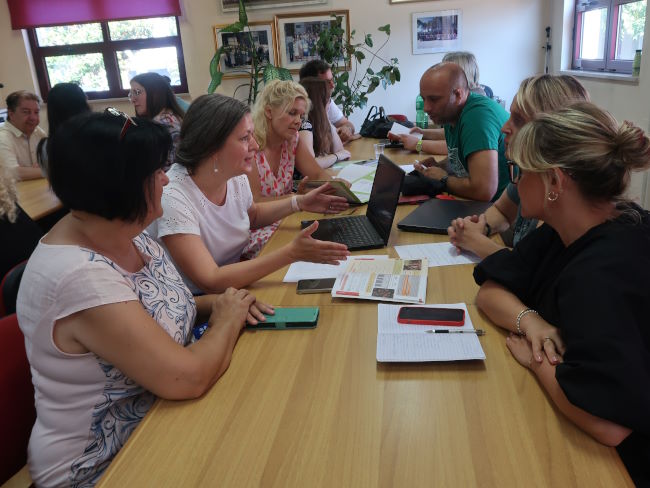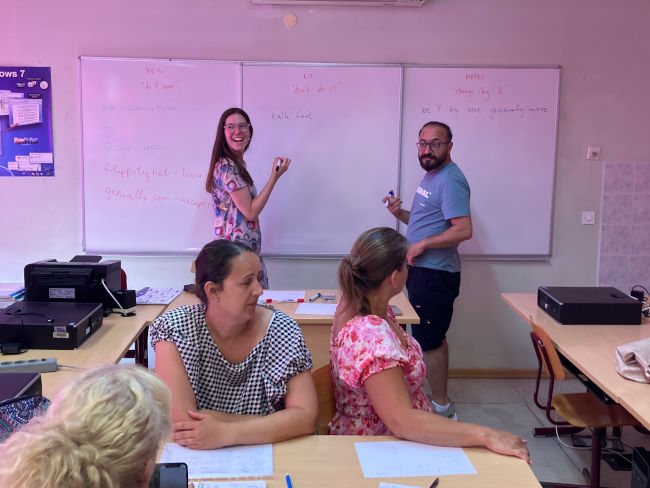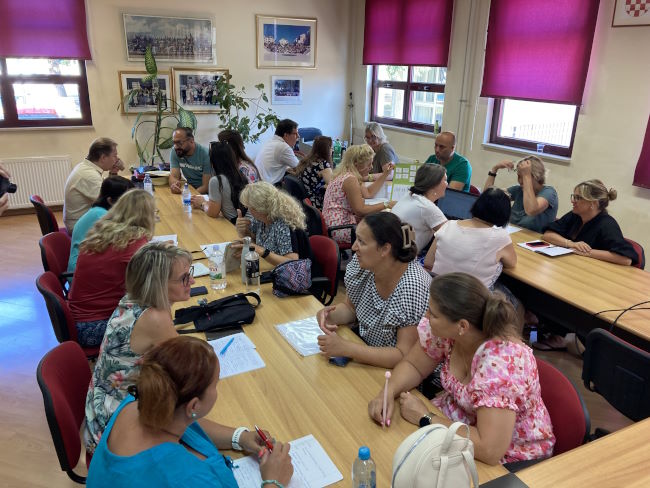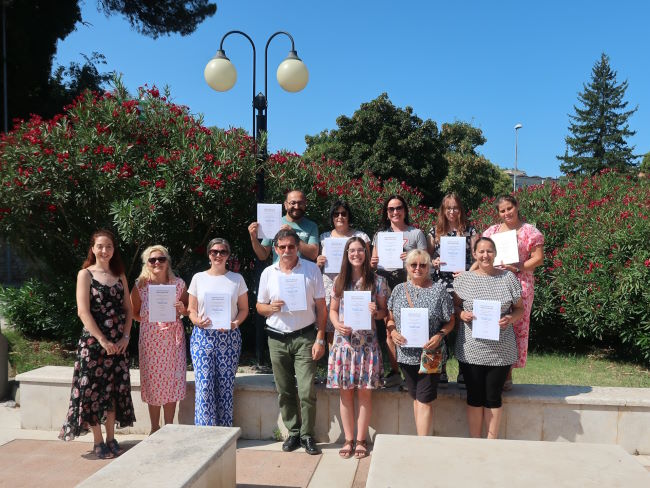Course Description
In the 21st century transversal skills, such as collaboration skills, prepare students for the professions we cannot imagine or know about yet. The skill set for successful collaboration can be developed through formal education. Moreover, collaborative projects are opportunities for differentiation. During this workshop a strategy for introducing and managing collaboration in the STEM classroom would be shown.
Course Objectives
- to show teachers the possibilities of utilizing all skills and intelligences of students in the STEM classroom
- to help teachers identify possible materials for collaborative work in already existing textbooks/resources
- to introduce a methodology for enhancing student collaboration step by step
- to show the benefits of both analogue and digital materials in collaborative learning
Learning Outcomes
By the end of the course
- participants would get familiar with online and offline collaborative methods and their problem based utilization
- participants are going to meet applications that enhance classroom collaboration and save preparation time
- a project on a 21st century global problem will be created, applying the approach introduced during the week
Planned Schedule
| Day 1 | Day 2 | Day 3 | Day 4 | Day 5 | Day 6* | |
| 1 | Reimagining STEM learning based on Gardner’s theory of multiple intelligences. | Making already existing textbooks collaborative resources with the Mosaic method | Digital tools enhancing collaboration | Problem-based collaboration | The creation of a collaborative education tool in a chosen topic related to sustainability | Dissemination preparation: SPRE presentation for peers (own and parallel groups) |
| 2 | Identifying transversal skills in STEM | Web 2.0 in the classroom | The creative process in collaborative learning | Round-up: discussion of SPRE outcomes, feedback and course evaluation | ||
| 3 | The role of input | Digital tools enhancing collaboration | Certificates of attendance | |||
| 4 | Developing games to enhance micro-collaboration | Web 2.0 in the classroom |
*not part of 5-day course, wrap-up takes place on Day 5
Dates and Prices
| Language level: | English B1 and above* |
| Locations: | Budapest (Hungary), Pula (Croatia) |
| Time: | 9 AM to 2:30 PM daily (extracurricular activities outside of learning activities) |
| Dates: |
|
| Price: | Budapest: €430 (5 days), Pula: €510 (6 days) - including an extracurricular activity and a welcome lunch or dinner |
*The language of the course is English, linguistic aid may be provided for speakers of Hungarian with lower language abilities.
Conditions
The course complies with all rules as set in the Quality Standards of the Erasmus+ program. Courses are including an extracurricular cultural activity and a welcome lunch or dinner, and study groups are international. Note: should the latter condition not be met, participants will be informed 40 days in advance.
Payment facilities: participants with funding from the actual year’s project budget may ask to request a deposit of EUR 100 to guarantee their places on the course and pay the rest of the fees later.
It is possible to take part in 2 consecutive courses, please book both separately. A price reduction of 15% will be applied.
This course is hosted by Babylon Academy (OID: E10339970) in Budapest (Hungary) and by Talijanska srednja skola Dante Alighieri (OID: E10101077) in Pula (Croatia).


